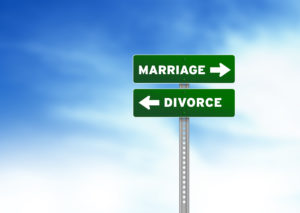Today’s topic will impact around 50% of today’s married couples according to commonly accepted statistics. However, it is encouraging to note that the divorce rate may be decreasing, at least according to the Institute of Family Studies. For our purposes, it is important to know that few things can demolish an estate plan in Florida more quickly and thoroughly than a divorce. When this major life event happens, there are a few things that need to be done to fix the estate plan right away. This article will focus on estate planning after divorce in Florida and the 2 critical estate planning moves that must be made right away. Ideally, these steps should be initiated during the divorce process and finalized after the divorce is final to protect children and other heirs from a dangerously outdated plan.
2 Estate Planning Moves to Make After Divorce in Florida
A divorce directly impacts the estate plan on 2 fronts which concern “who is appointed to handle estate affairs” AND “who will inherit the estate assets”.
Replacing Key Estate Appointees Due to Divorce
A divorce rips the core out of most estate plans because the key individual (namely the spouse) who has been entrusted with numerous estate administration duties is usually no longer appropriate for these roles. We’ve discussed the various documents and key roles of the well prepared estate plan. However, as a brief review, your Florida Last Will and Testament, Florida Durable Power of Attorney and Florida Medical Directives all contain key persons who are designated to enforce them who are (in corresponding order) your Florida Personal Representative, your Power of Attorney and your Healthcare Surrogate.
In addition, certain estate plans that include a Florida Revocable Living Trust will also appoint a Successor or Co-Trustee in Florida. Guardianship responsibilities, where minor children or elderly adults are concerned, are also to be considered although the ex-spouse may still maintain the top spot for the children of the divorced couple.
For most estate plans, one spouse will have appointed the other spouse as the primary person for all of these roles and in most cases. In almost every case, a looming divorce has resulted in a significant strain on the relationship and the soon to be ex-spouse undertaking any of these roles is not desirable to maintain ANY position of legal authority over the other spouse. Worse yet, sometimes a divorce can take many months or even years to finalize and the changing of estate appointees can and should be accomplished even before a divorce is finalized unless there is real hope of salvaging the marriage. Simply, updating the Last Will, Durable Power of Attorney, Healthcare Directive and any other Guardianship or Trust Documents can go a long way toward protecting a divorcing spouse from a catastrophe.
Deciding Who Will Inherit the Estate After Divorce
A Divorce Changes The Estate Plan Because It Is Likely That The Ex-Spouse Is No Longer Intended To Inherit The Bulk Of The Estate Assets.
In the event of a divorce, marital assets are divided between the spouses in accordance with State laws, unless a Florida prenuptial agreement was entered into, and thus, the ex-spouse generally retains no rights to the other ex-spouse’s estate. This means that upon finalizing the divorce, the key estate planning documents responsible for distributing the estate (Last Will and Revocable Living Trust) should be replaced so that there is no possibility of the ex-spouse making a claim on the estate.
It can be a difficult adjustment for the divorcing spouse to start thinking like a single person; however, this transition will need to happen quickly when it comes to deciding who will inherit the estate. If there are minor children of the marriage, then assets reserved for the children need to be administered by a Trustee or Legal Guardian. It is important to understand that unless one of the divorcing spouses has been deemed “unfit” for custody of the children, they will be the natural guardian of the children if the “Primary Residential Parent” passes away. That said, it is still important for the divorcing spouses to appoint a successor Guardian, to serve upon the death of both parents, and ideally the appointees of both spouses should be the same person. It is also important for a divorcing spouse to appoint an independent “Trustee” to handle the financial assets that are designated for minor children; especially, if the ex-spouse is not deemed trustworthy.
Remember that making these kinds of decisions can be very difficult to face during the emotional process of divorce. However, it is important to remember to treat the divorce process and these estate planning matters as business decisions and not personal. As I always say, keeping on top of estate planning matters can save substantial cost and heartache down the road. This is especially true where divorces and second marriages are involved.
This is an updated version of an original post dated May 26, 2016.



You must log in to post a comment. Log in now.